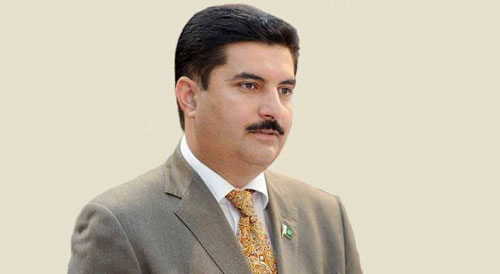Couples’ right to family-planning most compromised amongst marginalized communities
Zubair Qureshi
Poorest women in Pakistan need to be provided with subsidies for travel and other out-of-pocket expenses incurred to meet service provider fee in reaching family planning services through incentivized voucher schemes,” said Faisal Kundi, Special Assistant to the Prime Minister on Poverty Alleviation and Social Safety at a ceremony to launch scale-up of family planning voucher scheme in Punjab, organized by the Population Council.
The ceremony was held to commemorate scale-up of the voucher scheme in five districts of Punjab, after its successful pilot in Rahim Yar Khan.
The scale-up is being jointly implemented by the Benazir Income Support Programme (BISP), Punjab Population Innovation Fund (PPIF) and the Population Council with support from the United Nations Population Fund (UNFPA) in Dera Ghazi Khan division of Punjab.
Addressing participants at the launching ceremony, SAPM Faisal Kundi said the government accorded highest-level priority to poverty alleviation and for this, reducing population growth rate is critical.
He said that evidence generated from the scale-up of voucher scheme will support the government in implementing similar programs that provide better health outcomes to poorest women.
“Public-private partnership, evidence generation and technology interventions must be promoted in the health sector to overcome inequities in access to health services,” he added. He said that he would recommend to Prime Minister that health and population welfare departments should work with social safety net programmes to introduce conditional cash transfer schemes to enable poor women access the family planning services. He said that government undertook a number of initiatives to enhance the health and wellbeing of the people by making family planning and reproductive health services more accessible.
The government is developing a dynamic and comprehensive survey to identify vulnerable population that needs urgent support specially after the recent flood.
Earlier, in her welcome address, Dr. Zeba Sathar, Country Director Population Council said, “The right to family planning services is most compromised for marginalized population mainly due to financial constraints.” Enhanced funding and expanding couples’ choice by reducing financial barriers to contraceptive services will produce a much-needed boost in meeting both family planning and maternal health goal, she added.
Presenting compelling case of upscaling innovative model to provide family planning services to marginalized communities, Population Council shared the case for scale up that builds on the successful intervention by the pilot in 2019 which served over 22000 BISP beneficiaries in short span of five months in 2021 through conditional cash transfer confirming that poorest women with unmet need for family planning services need to be targeted with subsidies. The model is being replicated in DG Khan division this year to serve disadvantaged populations.









